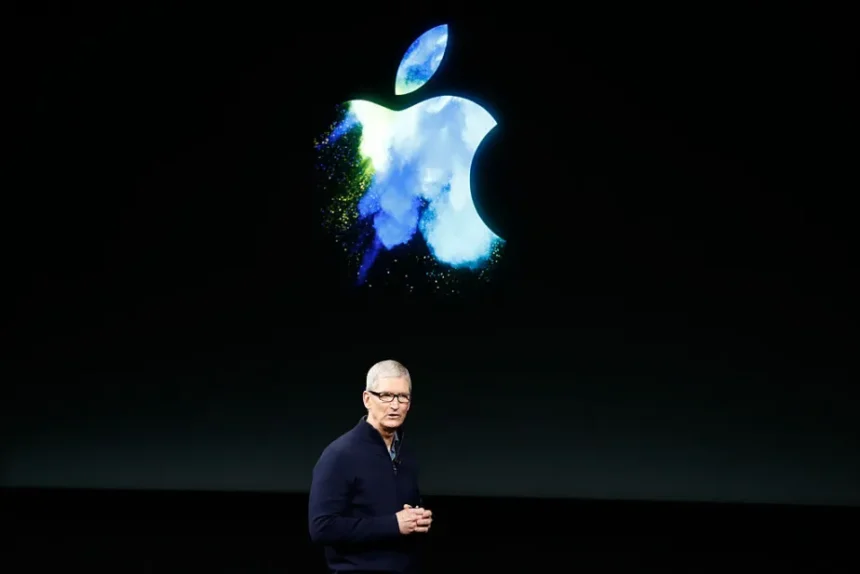Apple is fiercely pushing back against a U.K. government order demanding a backdoor into its encrypted iCloud backups — a move that could set a global precedent for digital privacy. The tech giant has taken the matter to the Investigatory Powers Tribunal (IPT), a specialized court that handles cases related to state surveillance and security services, as first reported by the Financial Times.
The Order: A Blow to Privacy?
The controversy stems from a January directive, quietly issued under the U.K.’s national security surveillance laws, compelling Apple to provide law enforcement with access to users’ encrypted iCloud backups. This order effectively demanded Apple weaken its Advanced Data Protection (ADP) feature, which offers end-to-end encryption for cloud-stored data — a feature that ensures only the user holds the key to their information.
The directive sparked outrage among privacy advocates and tech experts alike, who argue that creating backdoors for law enforcement would inevitably expose users to hackers and malicious actors.
In response, Apple made the bold decision to strip U.K. users of access to its most secure iCloud backup option, rather than compromise the security of its global customer base. Simultaneously, the company initiated legal proceedings, signaling its intent to fight the order head-on and safeguard its commitment to user privacy.
A Global Ripple Effect
One particularly contentious aspect of the order is its extraterritorial reach. According to the Financial Times, U.K. officials not only sought access to data within their jurisdiction but also attempted to extend that reach globally — potentially undermining the privacy of Apple users worldwide.
Despite disabling the ADP feature for U.K. users, Apple’s refusal to apply the backdoor globally has led British authorities to claim the company is still non-compliant. This international dimension adds a layer of complexity to the case, as it raises questions about how far national laws should extend in the realm of global digital services.
The Tribunal Showdown
The case now rests with the Investigatory Powers Tribunal, which oversees complaints against the security services. While this might be the first major test of the U.K.’s encryption-busting powers, the proceedings are likely to occur behind closed doors, adding an air of secrecy to an already contentious issue.
Apple, known for its unwavering stance on user privacy, declined to issue a fresh statement but pointed back to its earlier remarks. In a previous statement, the company expressed deep disappointment over the situation, lamenting the loss of a critical security feature for U.K. users.
“We are gravely disappointed that U.K. users will no longer have access to this advanced security feature. At Apple, we believe in protecting our users’ most sensitive data, and we will continue to fight for their right to privacy,” the spokesperson had stated.
The Broader Battle for Encryption
This legal battle isn’t just about Apple or even the U.K. — it’s part of a larger global struggle over encryption, privacy, and government surveillance. Tech companies argue that weakening encryption for one government inevitably weakens it for all, creating systemic vulnerabilities that cybercriminals and hostile entities could exploit.
For privacy-conscious consumers, the outcome of this case could determine whether their personal data remains truly private or whether governments worldwide can compel tech firms to break their own security systems.
Apple’s willingness to pull back features in the U.K. rather than compromise its encryption stance underscores the company’s commitment to its core privacy principles. Yet, the risk remains that if the U.K. prevails, other governments may follow suit — leading to a domino effect that erodes digital privacy protections across the globe.
The Road Ahead
As Apple gears up for what could be a lengthy legal fight, the tech world watches closely. The case carries enormous implications for how tech companies balance user privacy with government demands and could influence digital rights policies worldwide.
Whether Apple succeeds in overturning the U.K. order or not, one thing is clear: the debate over encryption and government access is far from over. And as technology evolves, the tension between privacy and security will only intensify — making battles like this one pivotal moments in the ongoing fight for digital freedom.
Stay tuned as this story unfolds, because the future of online privacy may hinge on what happens next in that secretive U.K. tribunal room.










